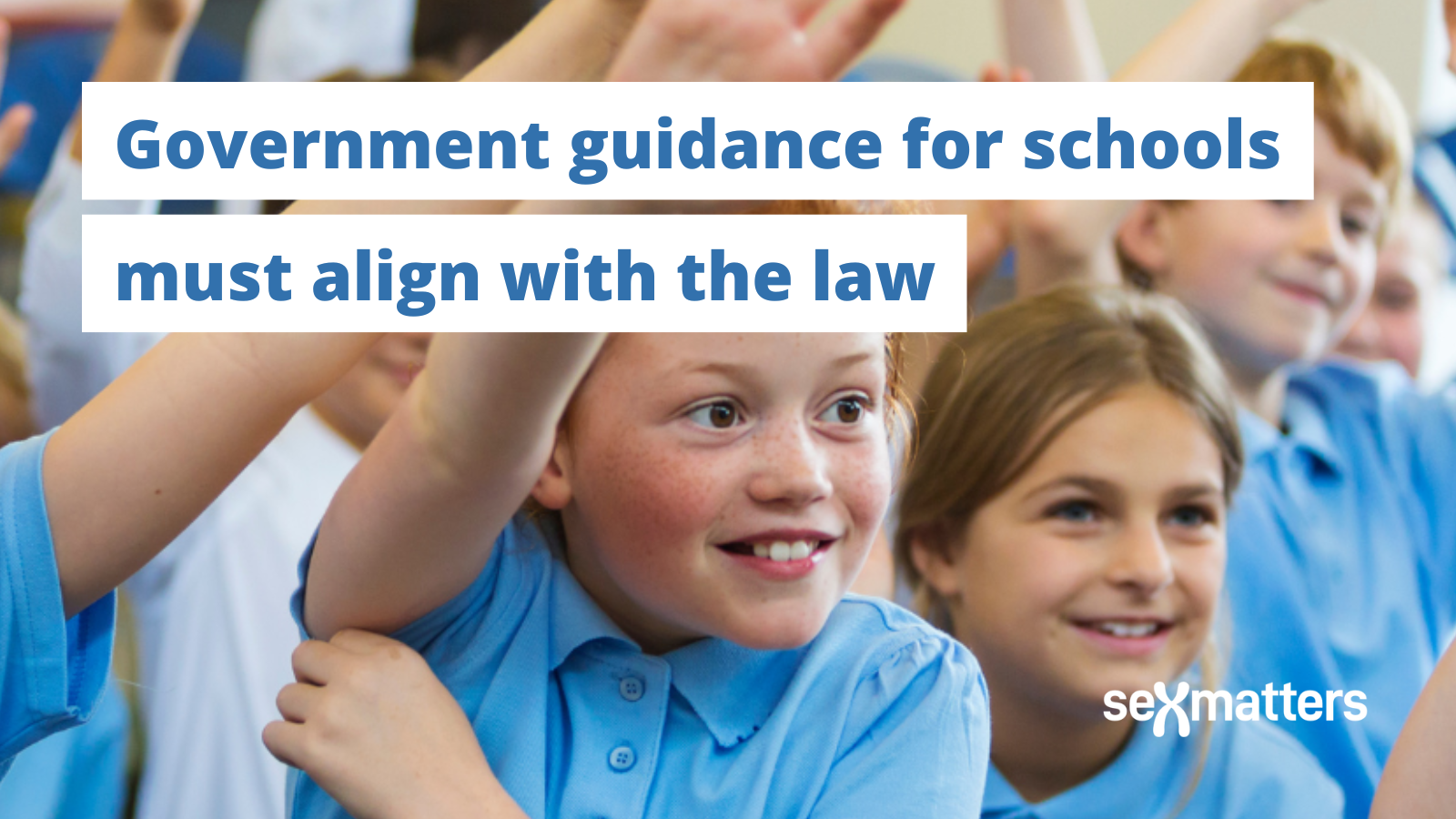Schools are in danger of breaking the law on sex and gender

The Department for Education’s new guidance for schools needs to be produced soon, and it needs to be aligned with the law. Today we publish the UK’s first review of the legal framework on sex and gender in education, and it shows that thousands of schools and colleges in England are in danger of breaching legal requirements due to the lack of government guidance and faulty existing guidance from the Equality and Human Rights Commission.
Our review found that schools are legally obliged to recognise sex in a wide range of areas, including registration, data protection, toilet and changing facilities, and behaviour policies, and that it is crucial that every teacher knows each child’s sex in order to fulfil their duty of care and safeguarding.
Polling by YouGov in February 2022 found that 79% of teachers say their schools have pupils who identify as trans or non-binary; 81% say their schools would use chosen pronouns and 19% say their schools would also allow pupils to use the facilities of their “gender identity” rather than their sex. But in taking these steps, schools may be breaching the law, putting them at risk of being sued.
To produce our review, we spoke to more than a dozen experts, including specialists in education, equality and safeguarding, and lawyers. Among them were education lawyer Alice de Coverley, educational psychologist Dr David Buck and solicitor Rebecca Bull. We also spoke with teachers, parents, school leaders, and special educational needs coordinators (SENCOs) and looked at the breadth of legislation and regulations for schools. None of this legislation tells schools that they can lie about a child’s sex, or that they should place some children outside of the normal rules and protections for girls and boys. Schools that get confused about the law and that do not have clear policies will be at risk of breaching their statutory duties.
We analysed more than 20 laws and regulations, including the Education Act, the School Standards and Framework Act, Teachers’ Standards, the National Curriculum and statutory guidance on safeguarding. Nowhere is there legal provision for schools to record or treat children as being the sex that they are not, or any obligation for single-sex schools to admit children of the opposite sex.
We found that social transition in schools, including mandating the use of preferred pronouns, is inconsistent with statutory obligations, including safeguarding requirements and human-rights law.
The review also highlighted that the Education Act 1996 strictly forbids political indoctrination, and that schools and teachers may not promote or express partisan political views or personal beliefs in ways that exploit pupils’ vulnerabilities. Recent high-profile stories in the media highlight cases in both the curriculum and teachers’ behaviour.
Schools are also obliged to respect pupils’ philosophical beliefs, and a requirement on children to refer to a boy as “she” or a girl as “he” (that is, a ban on “misgendering”) is likely to constitute belief discrimination against children and parents. Maintained schools are also obliged to respect children’s article 9 and 10 rights to freedom of belief and freedom of expression.
Sex Matters’ legal review has been launched ahead of a much-anticipated update on guidance for schools and colleges in England from the Secretary of State for Education, Gillian Keegan, on what to do when a child is “questioning their gender”. Keegan announced in July that there would be a delay in publishing the guidance.
We wrote to the Minister for Women and Equalities, Kemi Badenoch, in early August, calling on her to ask the Equality and Human Rights Commission explicitly whether it still believes that the interpretation of the Equality Act it has been giving to schools since 2014 is correct. We think that the EHRC misinterpreted the act, and in doing so actually encourages direct discrimination against pupils with the protected characteristic of “gender reassignment”.
We have sent our review to both MPs, and we are urging the government to ensure that its guidance is consistent with the law.
